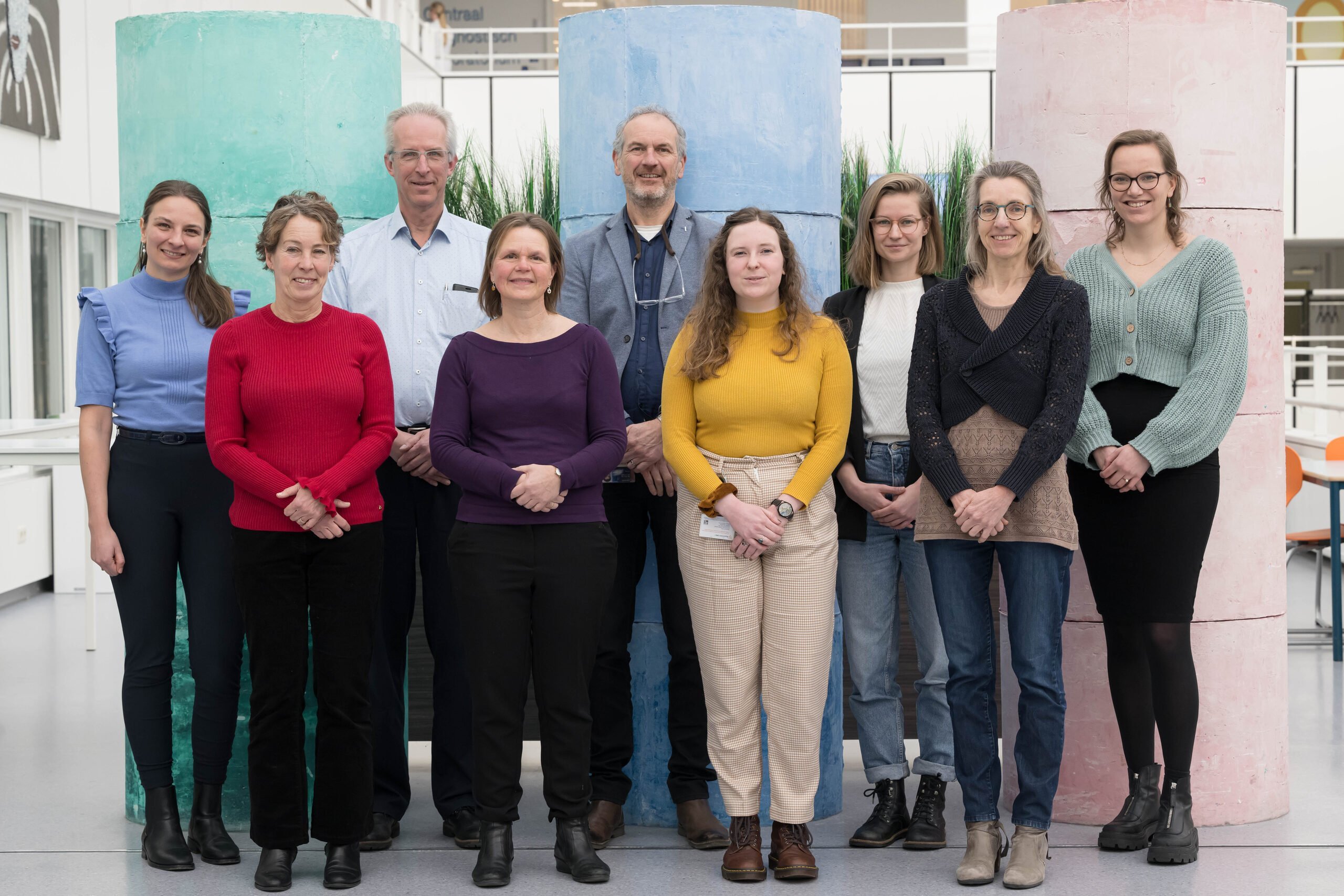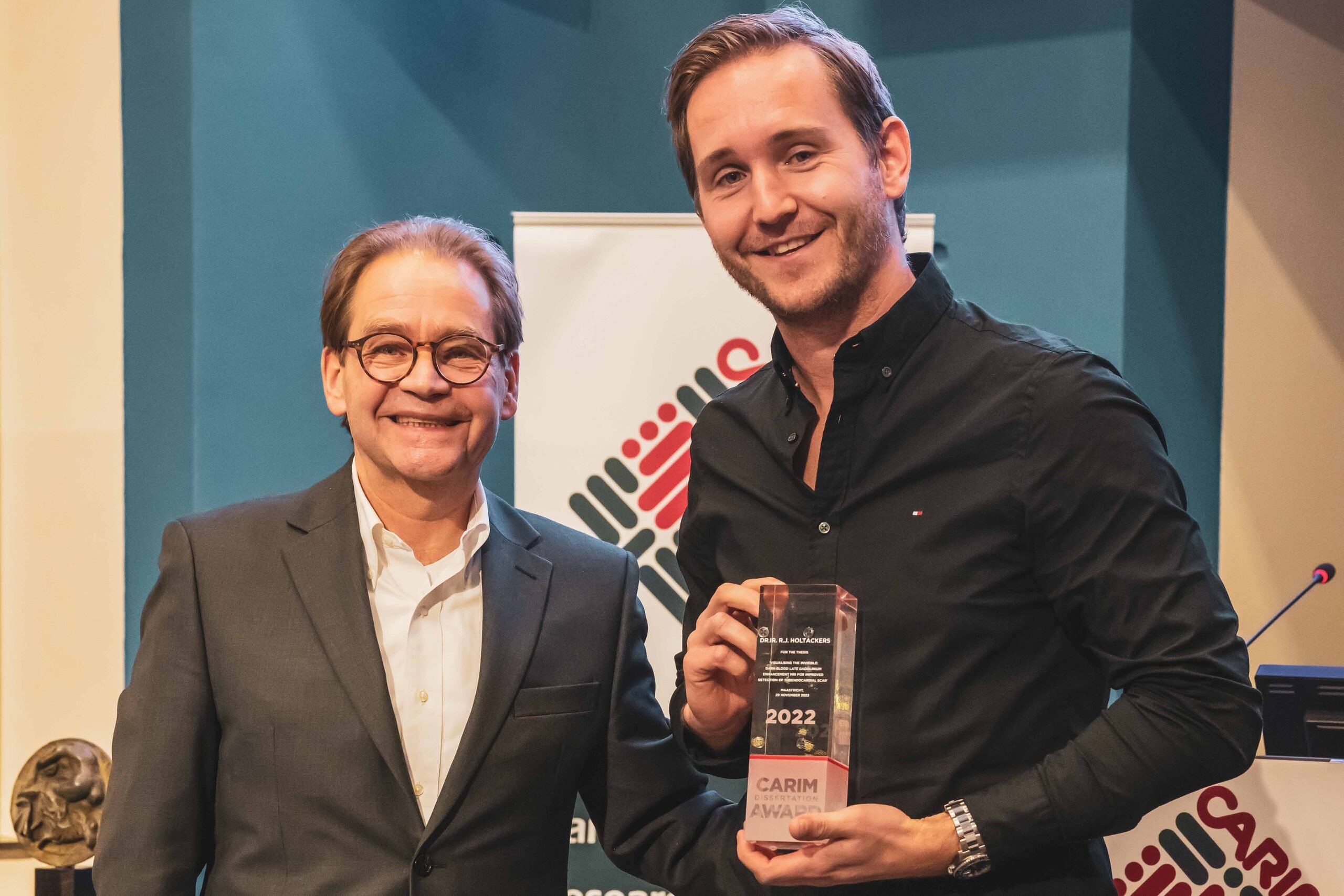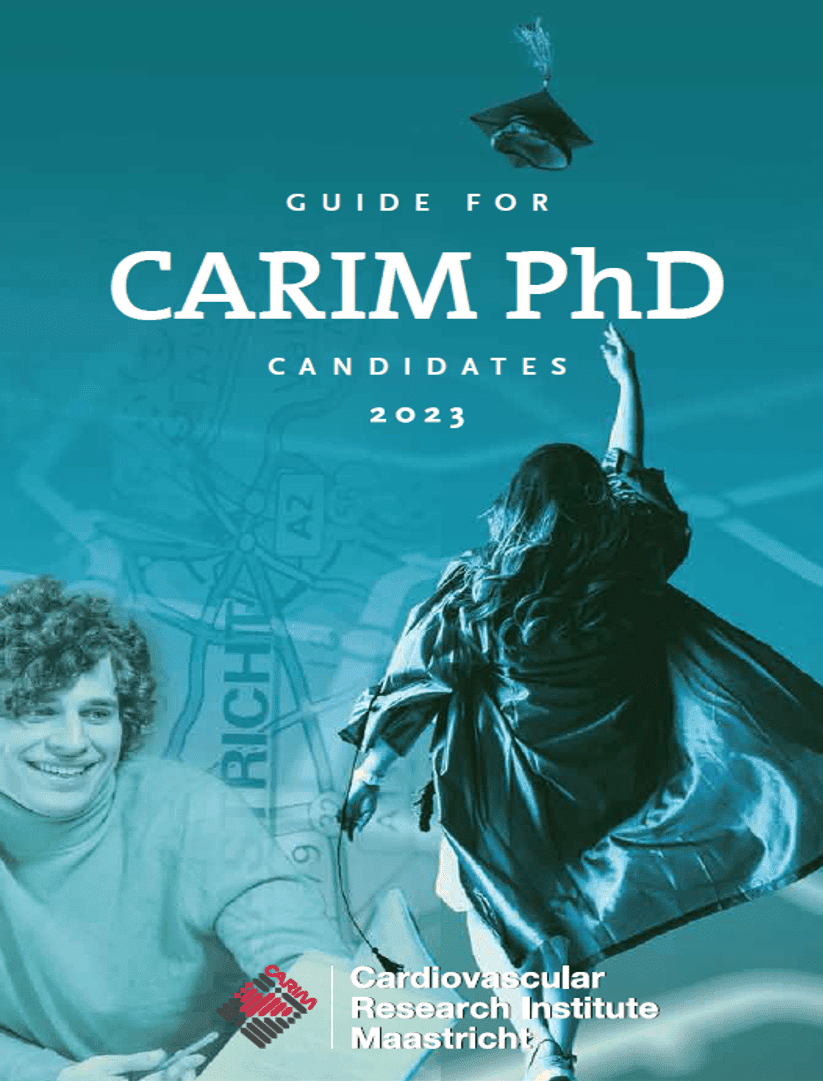PhD programme
CARIM's PhD programme is accessible for talented and motivated students that are graduated from national and international Medical and Biomedical Masters. Currently approximately 100 PhD candidates are enrolled in our PhD programme. Almost 50% of our PhD candidates come from foreign countries, guaranteeing an international atmosphere. In general, PhD candidates are selected through open competition when there is a vacancy.
Available positions are usually posted on Academic Transfer and on CARIM Vacancies.
The principal goal of the 4-year PhD training programme is to support PhD candidates in developing themselves into independent and productive researchers in the cardiovascular field. To ensure high quality PhD training, CARIM offers frequent interaction of PhD candidates with a skilled and experienced supervisory team, thereby providing a stimulating and critical environment to further develop one's research skills. We also offer our PhD candidates a broad range of possibilities to attend seminars, master classes, and symposia to present their own research on national and international podia.
- CARIM PhD Guide
- PhD Coordinator: Prof. Eline Kooi
- PhD at FHML/MUMC+
- Scientific integrity
- Roadmaps for scientific integrity and social safety
- PhD support UM
- Guidelines – CARIM Training & Development plan
CARIM Courses
CARIM organises several state-of-the-art cardiovascular courses for PhD candidates within one week in parallel. This so-called CARIM Course Week not only encompasses cardiovascular courses, but also includes a joint programme as well as various social activities co-organised by I'M CARIM, our PhD club.
The CARIM Courses allow you to become acquainted with state-of–the-art technologies and novel concepts in Cardiovascular Research. Equally important, it allows you to meet fellow PhDs and CARIM staff. This will help you to generate new ideas, to boost your own research, and to enlarge your network.
Courses:
- Heart Failure Research
- Non-Invasive Cardiovascular Imaging
- Drug Development
- Vascular Inflammation and Thrombosis
The Department of Molecular Cell Biology organises the course 'Advanced Optical Microscopy'. This course also counts as a CARIM course.
In 2024, the CARIM Courses are takes place the entire first week of June: 3-7 June 2024. The courses are:
- Drug Development
- Vascular Inflammation and Thrombosis
Click here for the flyer and here for the registration form.
Dutch Heart Foundation PhD courses (Papendal courses)
The cardiovascular PhD-training courses consist of 3 state-of-the-art courses. These are organised under auspices of and with financial support from the Dutch Heart Foundation. All three courses take 5 days and take place at the Papendal conference Center in Arnhem in or around October. The courses are open not only to CARIM PhD candidates but also to PhD candidates of other Dutch universities and research institutes. The Papendal courses address three topics, corresponding with the CARIM research themes: Cardiac Function & Adaptation, Vascular Biology, and Thrombosis & Haemostasis. For detailed information on the contents of the Papendal courses and how to apply click here.
Education Programme Committee
The Education Programme Committee coordinates both the PhD and Master’s programmes and advises the Executive Board on all issues regarding these educational programmes.
• Prof. Eline Kooi
• Dr Matthijs Blankesteijn
• Dr Boy Houben
• Dr Marleen van Greevenbroek
• Minke Rijpkema
• Laura Kempen
• Elias Wieland
• Eline Berends
• Lisa den Brok

Confidential Advisors and CCP
PhD candidates that need advice are always welcome to contact the CARIM PhD coordinator, Prof.dr. Eline Kooi; eline.kooi@mumc.nl, or their CARIM coach. PhD candidates who encounter questions or problems that they would like to discuss with a person completely detached from the research institute or department where they work can contact emeritus professor Maria Jansen: maria.jansen@maastrichtuniversity.nl.
Prof. Maria Jansen has been appointed as an independent external confidant for PhD candidates at FHML/Maastricht UMC+. She herself has been a promoter of many PhD candidates, and the well-being of the PhD candidates is close to her heart. As a confidant, she will stand ‘beside the PhD candidate’ while listening. She will treat everything said in strict confidentiality and will not register anything. The goal is to help the PhD candidate get back on track.
Together with you, the CCP will look for a way to move forward. If you contact the coordinator of the CCP, there is always a colleague available who knows the formal and informal routes within UM, and who will help you find the best way to deal with your question, concern, report or complaint. Of course, you can also come to the CCP if you just want to get something off your chest. Interviews with the CCP coordinator are confidential.
Dissertation award 2022
Dr.ir Rob Holtackers (Dept. of Radiology & Nuclear Medicine) received the CARIM Dissertation Award 2022 for his thesis ‘Visualising the Invisible: Dark-Blood Late Gadolinium Enhancement MRI for Improved Detection of Subendocardial Scar’.





